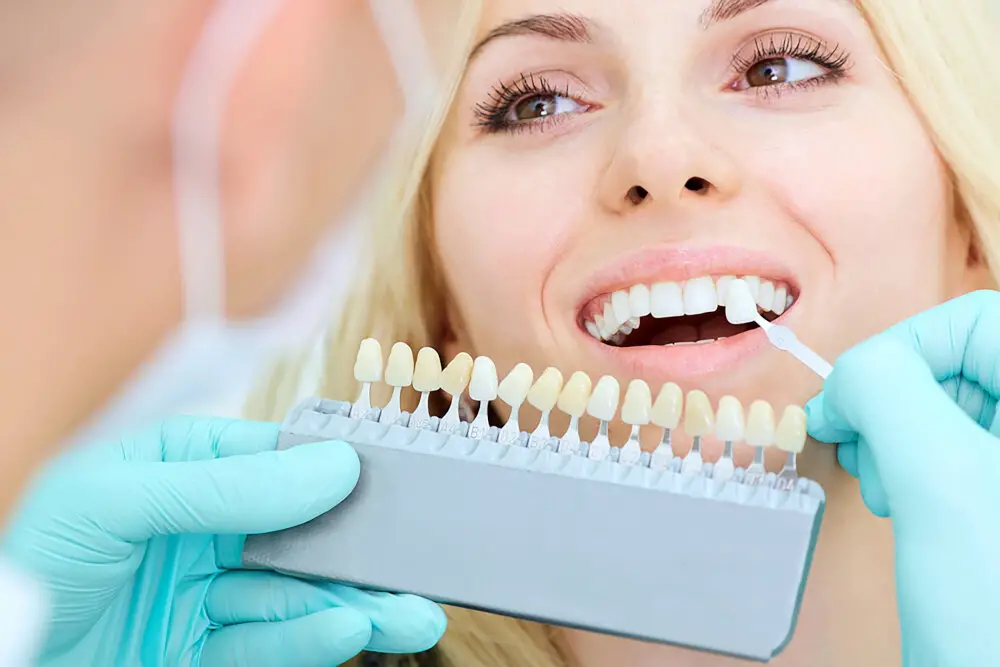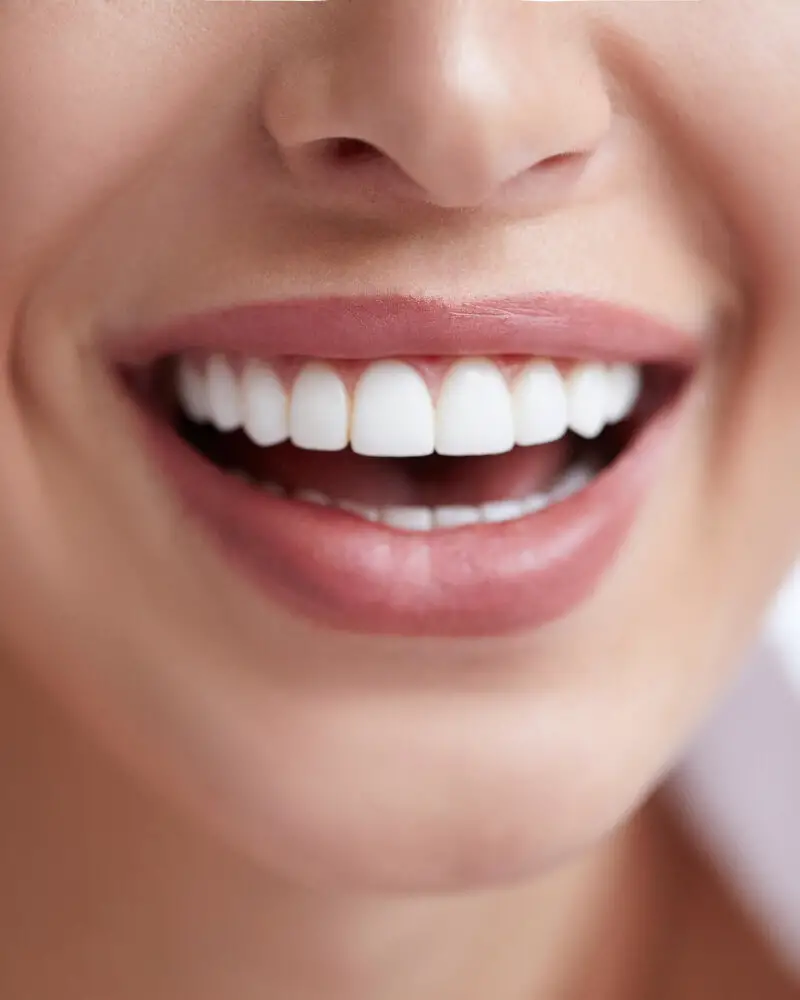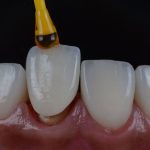Wisdom Teeth Removal: Quick and Easy Tips to Relieve Numbness

Wisdom teeth removal can be a daunting experience for many individuals. While the procedure itself may be relatively quick and easy, the recovery process can be uncomfortable and sometimes even painful. One of the most common side effects of wisdom teeth removal is numbness, which can last for several hours or even days. Fortunately, there are several tried-and-true methods to help relieve numbness and make the recovery process as comfortable as possible. One of the best ways to relieve numbness after wisdom teeth removal is to apply a cold compress to the affected area. This can help reduce inflammation and swelling, which can in turn help alleviate any discomfort or numbness. Additionally, gently massaging the area around the extraction site can also help promote blood flow and reduce numbness. However, it is important to avoid applying too much pressure or massaging too vigorously, as this can cause further irritation or discomfort. With these simple tips and tricks, you can make the recovery process after wisdom teeth removal as quick and painless as possible.
Wisdom teeth removal is a common dental procedure that involves the extraction of the third molars located at the back of the mouth. Usually, these teeth are removed due to overcrowding, impaction, or the risk of infection. During the surgery, local anesthesia is administered to numb the area around the teeth. However, numbness may occur after the procedure due to the impact of the anesthetic on the nerves. This numbness can be temporary or permanent, depending on the complexity of the surgery and the individual’s healing process. In most cases, the sensation returns within a few hours or days after the procedure. Nonetheless, it’s essential to take proper care and follow the postoperative instructions to minimize the risk of complications and promote faster recovery.
Immediate PostOp Care

Immediate postoperative care is a crucial aspect of wisdom teeth removal. After the procedure, it is imperative to follow the dentist’s instructions to ensure a smooth and speedy recovery. It is normal to experience numbness and mild discomfort, but there are steps that can be taken to alleviate these symptoms. The first 24 hours are particularly critical, and it is advised to rest and avoid any strenuous activity. Ice packs can be applied to the affected area for 20 minutes at a time to reduce swelling and pain. It is also recommended to consume soft foods and liquids and avoid hot or spicy foods that can irritate the area. Additionally, smoking and alcohol should be avoided as they can impede the healing process. Maintaining good oral hygiene is also crucial during the immediate postoperative period. Patients should gently rinse their mouth with warm salt water to reduce the risk of infection. It is important not to use mouthwash or brush the teeth near the extraction site as it can cause irritation. In addition to following these steps, it is essential to take any prescribed medication as directed by the dentist. Painkillers and antibiotics may be prescribed, and it is important to take them as instructed to manage pain and prevent infection. By following these tips, patients can ensure a quick and comfortable recovery from wisdom teeth removal.
Following postoperative instructions is crucial for a successful recovery after wisdom teeth removal. These instructions are given by the dentist or oral surgeon to help prevent complications and promote healing. Not following the instructions may lead to prolonged bleeding, infections, and delayed healing. It is essential to avoid smoking, drinking from a straw, and consuming hard or crunchy foods during the recovery period. Additionally, taking pain medications and applying ice packs as directed can help manage pain and reduce swelling. By adhering to postoperative instructions, patients can ensure a speedy recovery and minimize discomfort and complications.
Numbness is one of the common side effects of wisdom teeth removal. It can be an uncomfortable feeling that may last for several hours or even days. However, there are a few tips that can help reduce numbness and discomfort. Applying ice packs to the affected area can help reduce swelling and numbness. You can also avoid hot beverages, as they can increase blood flow to the area and prolong numbness. Additionally, gently massaging the cheeks and jaws can help increase blood flow and reduce numbness. It’s also important to follow your dentist’s post-operative instructions and take any prescribed medication to manage pain and discomfort. By following these simple tips, you can reduce numbness and make the recovery process more comfortable.
Pain Management

Pain management is an integral part of any surgical procedure, including wisdom teeth removal. The extraction of wisdom teeth can result in significant discomfort and pain. However, with proper pain management techniques, patients can alleviate their symptoms and enjoy a speedy recovery. Pain management techniques may include the use of over-the-counter painkillers, prescription medication, or local anesthesia. Patients should discuss their options with their dentist or oral surgeon before the procedure to ensure they receive the best possible care. It is crucial to follow the post-operative instructions provided by the oral surgeon or dentist to manage pain effectively. These instructions may include applying ice packs to the affected area, avoiding spicy or hard-to-chew foods, and taking painkillers as prescribed. Patients should also avoid smoking or using tobacco products as they can slow down the healing process and increase the risk of complications. Overall, pain management is a crucial aspect of wisdom teeth removal, and patients must take the necessary steps to manage their discomfort effectively.
After wisdom teeth removal, pain management options include both prescription and over-the-counter medications. Non-steroidal anti-inflammatory drugs (NSAIDs), such as ibuprofen and naproxen, are commonly recommended to alleviate pain, swelling, and inflammation. Acetaminophen can also be used to reduce pain, although it doesn’t have the anti-inflammatory effects of NSAIDs. In some cases, prescription pain medications, such as opioids, may be prescribed for more severe pain. Additionally, applying ice packs to the affected area, rinsing with salt water, and avoiding hard or crunchy foods can also help manage pain and promote healing after wisdom teeth removal. It’s important to follow the instructions provided by your dentist or oral surgeon to ensure proper pain management and avoid complications.
Reducing numbness while managing pain can be a challenging task, but there are a few tips that can help make the process more manageable. One of the most important tips is to take medications as prescribed, including pain relievers and anti-inflammatory drugs. Additionally, applying ice packs to the affected area can help reduce swelling and numbness, while staying hydrated and eating a healthy diet can support the body’s healing process. It’s also important to avoid smoking and drinking alcohol, as these substances can interfere with the body’s ability to heal and may exacerbate pain and numbness. With these tips in mind, it’s possible to manage pain and reduce numbness after wisdom teeth removal, allowing you to recover quickly and comfortably.
Diet and Nutrition

When it comes to wisdom teeth removal, diet and nutrition play a crucial role in ensuring a speedy recovery. It is important to stick to soft foods that can be easily chewed and swallowed, such as mashed potatoes, soup, yogurt, and smoothies. Avoiding hard, crunchy, and spicy foods is also recommended, as they can irritate the affected area and cause discomfort. Drinking plenty of water is also essential to stay hydrated and flush out any toxins from the body. In addition to focusing on soft foods, it is important to maintain a balanced and nutritious diet to aid in the healing process. Consuming foods rich in vitamins and minerals, such as fruits, vegetables, and lean protein, can help boost the immune system and promote tissue repair. However, it is important to avoid alcohol, caffeine, and sugary drinks as they can interfere with the healing process and cause dehydration. By following a healthy and balanced diet, patients can ensure a quick and easy recovery from wisdom teeth removal.
Diet and nutrition play a crucial role in the healing process and can significantly impact numbness after wisdom teeth removal. Consuming a balanced diet rich in nutrients such as vitamins A, C, and E, zinc, and protein can promote tissue repair and reduce inflammation. Additionally, foods that are high in antioxidants, such as fruits and vegetables, can help reduce oxidative stress and aid in the healing process. On the other hand, consuming foods that are high in sugar, salt, and unhealthy fats can impair healing and increase inflammation, which may prolong numbness. Therefore, it is essential to maintain a healthy diet and avoid unhealthy food choices to promote optimal healing and reduce numbness after wisdom teeth removal.
After wisdom teeth removal, it is common to experience numbness in the mouth area. To reduce this numbness, it is recommended to follow a soft food diet, which includes foods that are easy to chew and swallow. Some examples of soft foods are mashed potatoes, scrambled eggs, soup, and smoothies. It is also important to stay hydrated by drinking plenty of water throughout the day. Staying hydrated can help to flush out any toxins and reduce inflammation, which can contribute to numbness. Additionally, avoiding hot and spicy foods, as well as smoking and alcohol, can help to speed up the healing process and reduce numbness in the mouth area.
Activities to Avoid

After a wisdom teeth removal, it is crucial to avoid certain activities that could prolong the healing process or cause further complications. Activities that involve straining or putting pressure on the mouth should be avoided for at least the first few days after the procedure. This includes activities such as spitting, using a straw, smoking, and chewing gum. These actions can dislodge the blood clot, which is necessary for proper healing and can lead to dry socket, a painful condition that requires additional treatment. In addition to avoiding these activities, it is also important to avoid consuming hard, crunchy, or spicy foods. These types of foods can irritate the extraction site and cause pain and discomfort. Soft foods such as yogurt, mashed potatoes, and soup are recommended during the first few days after the procedure. It is also important to maintain good oral hygiene by gently brushing and rinsing the mouth with salt water. By following these guidelines, patients can ensure a quick and easy recovery from wisdom teeth removal and relieve numbness in the affected area.
After wisdom teeth removal, it is important to avoid certain activities to promote a smooth recovery. First and foremost, avoid smoking or using tobacco products for at least 72 hours to prevent dry socket, a painful condition where the blood clot protecting the bone and nerves becomes dislodged. Additionally, avoid vigorous rinsing or spitting, as this can also dislodge the blood clot and delay healing. Refrain from consuming hard, crunchy, or spicy foods as they can irritate the surgical site and delay healing. Finally, limit physical activity for the first few days to prevent bleeding and swelling. By following these guidelines, patients can ensure a faster and more comfortable recovery after wisdom teeth removal.
Numbness after wisdom teeth removal is a common experience, but there are ways to reduce it. One of the most effective ways is to avoid activities that can increase swelling or bleeding. This includes avoiding hot or spicy foods, smoking, drinking alcohol, and strenuous exercise. Instead, opt for soft and cold foods, like ice cream or smoothies, and rest as much as possible. Applying ice packs to the affected area can also help reduce swelling and numbness. By taking these simple precautions, you can minimize the discomfort of numbness and speed up the healing process after wisdom teeth removal.
Wisdom teeth removal is a common procedure that many people undergo. However, one of the most uncomfortable side effects of this surgery is numbness. Numbness can last for hours, days, or even weeks after the procedure, leaving you feeling uncomfortable and frustrated. Luckily, there are several tips you can follow to reduce numbness and speed up the healing process. These include applying a cold compress to the affected area, taking pain medication as prescribed, avoiding hot or spicy foods, drinking plenty of fluids, and avoiding smoking or alcohol consumption. By following these tips, you can minimize the discomfort of numbness and get back to your normal routine as quickly as possible.
It is extremely important to not ignore any persistent or worsening numbness after wisdom teeth removal. Although numbness is a common side effect, it should not last longer than a few days. If you experience numbness that persists or worsens, it could be a sign of nerve damage, which may require medical attention. Therefore, it is highly encouraged that you contact a healthcare provider immediately if you experience any unusual symptoms such as severe pain, bleeding, or excessive swelling. Seeking medical attention promptly can help prevent any potential complications and ensure a speedy recovery.
Conclusion

In conclusion, wisdom teeth removal can often lead to numbness in the mouth, which can be quite uncomfortable and inconvenient. However, there are various quick and easy tips that can help to relieve this numbness and promote faster healing. By following these tips, such as avoiding hot foods and drinks, using ice packs, and taking prescribed medication, patients can reduce their discomfort and get back to their normal routine as quickly as possible. It is important to remember to follow your dentist or oral surgeon’s instructions carefully and to contact them if you experience any severe or prolonged symptoms. With proper care and attention, you can successfully navigate the recovery process and enjoy a healthy, pain-free mouth.







